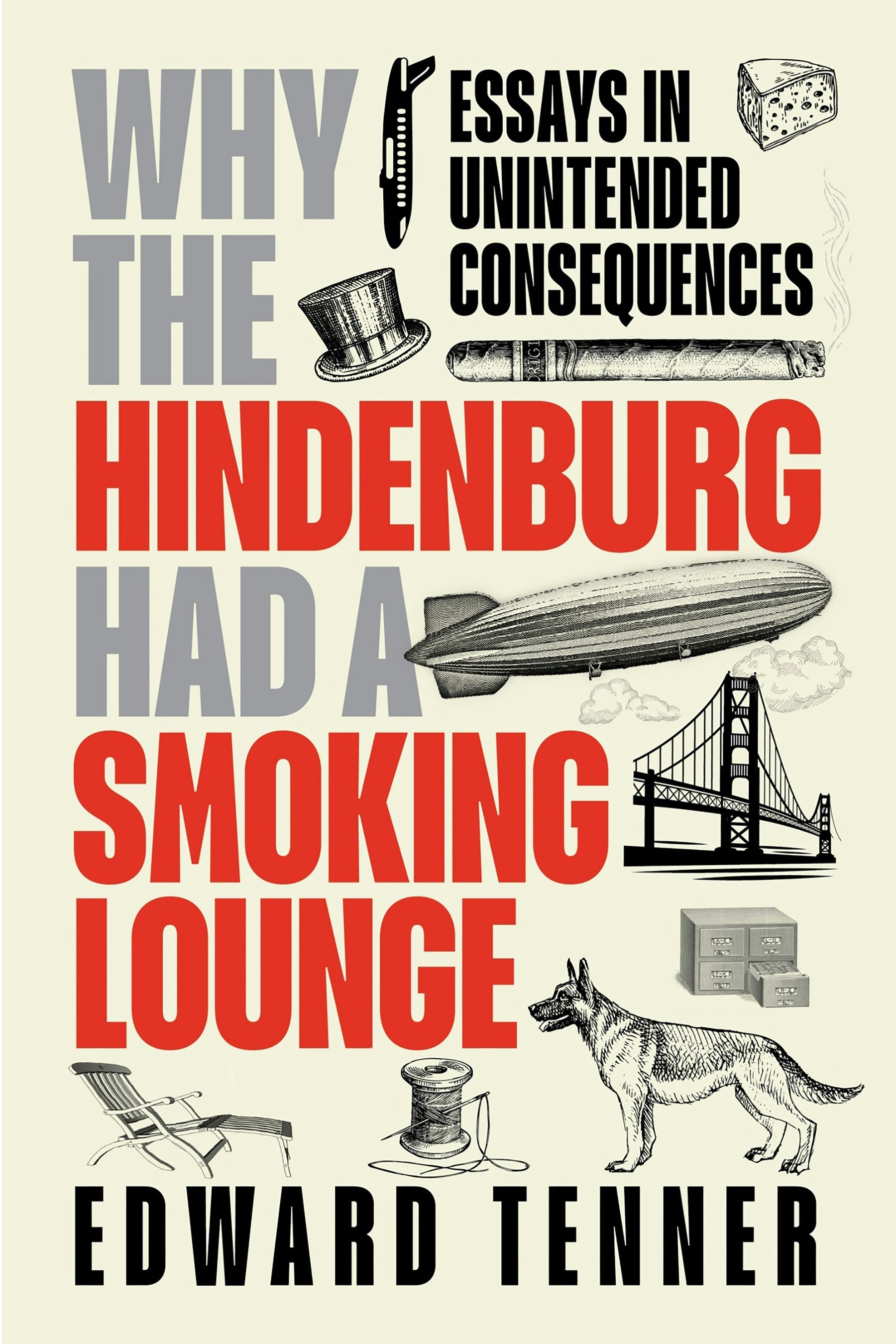Why the Hindenburg Had a Smoking Lounge: Essays in Unintended Consequences
Essays by international bestselling author Edward Tenner that explore both the negative and positive surprises of human ingenuity
How did the addition of lifeboats after the Titanic shipwreck contribute to another tragedy in Chicago harbor three years later? How efficient are wild animals as investors, and how do dog breeds become national symbols? Why have scientific breakthroughs so often originated in the study of shadows? How did the file card prepare scholarship and commerce for the rise of electronic data processing, and why did the visual metaphor of the tab survive into today’s graphic interfaces? Why have Amish artisans played an important role in manufacturing advanced technology? Why was United Shoe Machinery the Microsoft of the 1890s? Surprises like these, Edward Tenner believes, can help us deal with the technological issues that confront us now.
Since the 1980s, Edward Tenner has contributed essays on technology, design, and culture to leading magazines, newspapers, and professional journals, and has been interviewed on subjects ranging from medical ethics to typography. Why the Hindenburg Had a Smoking Lounge—named for one of the paradoxes that can result from the inherent contradictions between consumer safety and product marketing—brings many of Tenner’s essays together into one volume for the first time, accompanied by new introductions by the author on the theme of each work. As an independent historian and public speaker, Tenner has spent his career deploying concepts from economics, engineering, psychology, science, and sociology, to explore both the negative and positive surprises of human ingenuity.

